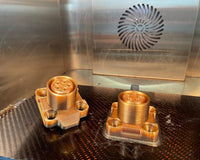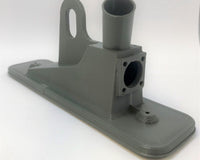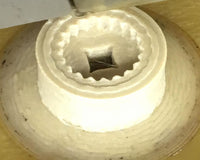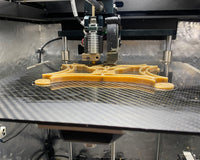PCL is a unique new filament with very powerfull features that is meant for 3D printing.
HAARLEM, DECEMBER 21, 2015 - Dutch filament producer 3D4MAKERS, headquartered in Haarlem, has developed a new filament with several unique features. The filament is extremely useful for a number of purposes, among which are home usage and safe use in the medical field and food production industry. This filament is named PCL (Polycaprolactone) and is made of a biodegradable polyester from the firm Perstop. PCL typically has a very low melting point of 60˚C.
PCL is extremely suitable for 3D printing objects that can be adjusted to meet specific requirements after printing. An example of this are orthoses, for instance insoles and replacements for plaster casts. In the future we plan to ask for permission to use PCL inside the human body. This will also make the filament useful for applications such as bio printing scaffolds for tissue, bone and organs and drug delivery devices.
Furthermore, PCL will open the door to many revolutionary variants of implantable devices inside the human body thanks to its ability to slowly degrade in the body. First tests in America with this material have resulted in saving a baby’s life via a 3D printed tracheal stent that was placed inside the baby’s body around his windpipe.
3D4MAKERS founder Jan-Peter Wille says: "PCL can be 3D printed starting at a temperature of 120˚C. After the object has been 3D printed it can be molded into any desired shape so that its custom fit to be placed around specific body parts. The molding is done by simply dipping the printed object in hot water (60˚C). The 3D printing and this unique molding method can easily be handled by any medical professional and even by consumers in the comfort of their own homes."







